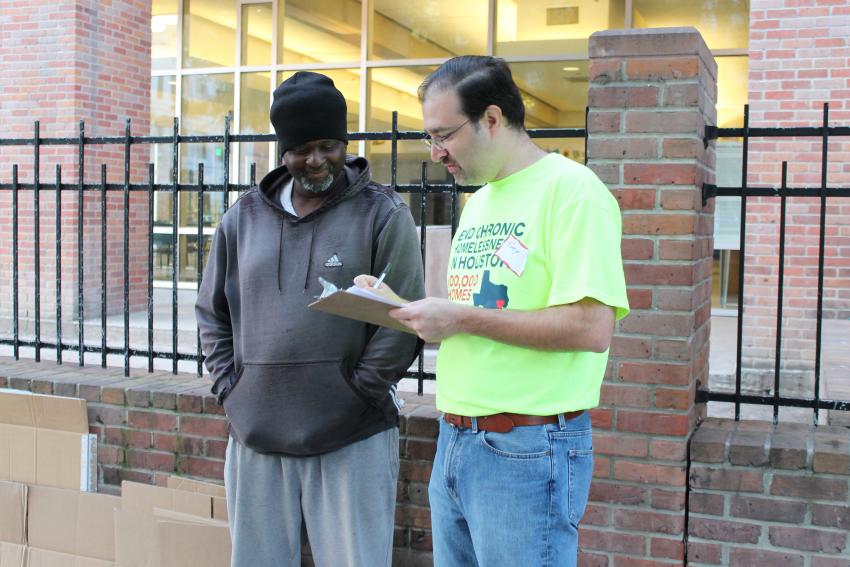 Shared by CLPHA Admin
on Nov 21, 2016
Shared by CLPHA Admin
on Nov 21, 2016
 Shared by CLPHA Admin
on Oct 25, 2016
Shared by CLPHA Admin
on Oct 25, 2016
Youth

This community is a space for Housing Is members interested in youth. Low-income youth face unique challenges and opportunities as their families move towards self-sufficiency through housing assistance; some youth are experiencing homelessness or are independent from guardians.
 Shared by CLPHA Admin
on Oct 25, 2016
Shared by CLPHA Admin
on Oct 25, 2016
West Coast

This community is a space for Housing Is members interested in the challenges and solutions to aligning systems on the US West Coast. The Housing Is initiative stands on the notion that it is only through cross-sector collaboration that we will build the partnerships that will help improve lives. Use the features in this community to discuss programs and policies, post research and reports, publicize events, share case studies and best practices, seek input and feedback from fellow members, and connect with others working in states along the West Coast.
 Shared by CLPHA Admin
on Oct 25, 2016
Shared by CLPHA Admin
on Oct 25, 2016
Seniors

Senior residents in affordable housing face unique challenges and opportunities to age in place. This community seeks to convene the vast array of social and health service providers, researchers, and administrators who serve the complex needs of aging populations.
 Shared by CLPHA Admin
on Oct 25, 2016
Shared by CLPHA Admin
on Oct 25, 2016
Pacific Northwest

This community is a space for Housing Is members interested in the challenges and solutions to aligning systems in the US Pacific Northwest region. The Housing Is initiative stands on the notion that it is only through cross-sector collaboration that we will build the partnerships that will help improve lives.
 Shared by CLPHA Admin
on Oct 25, 2016
Shared by CLPHA Admin
on Oct 25, 2016
Out-of-School Time

This community is a space for Housing Is members interested in out-of- school time (OST) like after-school and summer programs. OST plays an important role in supporting children’s learning beyond in-class time.
 Shared by CLPHA Admin
on Oct 25, 2016
Shared by CLPHA Admin
on Oct 25, 2016
Nutrition

This community is a space for Housing Is members interested in the intersections of affordable housing and nutrition. Research shows that many low-income families experience food insecurity and that hungry children perform worse in school. Affordable housing can be a platform to help families access healthy foods and eating habits. The Housing Is initiative stands on the notion that affordable housing is influenced by a variety of systems, and that it is only through cross-sector collaboration that we will build the partnerships that will help improve lives.
 Shared by CLPHA Admin
on Oct 25, 2016
Shared by CLPHA Admin
on Oct 25, 2016
Moving to Work (MTW)

This community is a space for Housing Is members interested in the Moving to Work (MTW) demonstration. The MTW demonstration has given qualifying public housing agencies the opportunity to design and test innovative, locally-designed strategies to improve efficiency, help residents find employment and become self-sufficient, and increase housing choices for low-income families.
 Shared by CLPHA Admin
on Oct 25, 2016
Shared by CLPHA Admin
on Oct 25, 2016
Midwest

Welcome to the Midwest Community! Collaborate with other group members by posting questions and ideas to the forum. Engage with members by sharing and commenting on resources like articles and reports in the feed. Explore below to learn more about this community.
 Shared by CLPHA Admin
on Oct 25, 2016
Shared by CLPHA Admin
on Oct 25, 2016
Metrics

This community is a space for Housing Is members interested in metrics. Metrics are useful in setting baselines and measuring progress over time, and are critical to evaluate the effectiveness of a plan for change. The Housing Is initiative stands on the notion that affordable housing is influenced by a variety of systems, and that it is only through cross-sector collaboration that we will build the partnerships that will help improve lives.
 Shared by CLPHA Admin
on Oct 25, 2016
Shared by CLPHA Admin
on Oct 25, 2016
Literacy & Grade-Level Proficiency

This community is a space for Housing Is members interested in literacy and grade-level proficiency. Persistent educational disparities among low-income children hinder their abilities to achieve economic success in adulthood. The Housing Is initiative stands on the notion that affordable housing is influenced by a variety of systems, and that it is only through cross- sector collaboration that we will build the partnerships that will help improve lives.
 Shared by CLPHA Admin
on Oct 25, 2016
Shared by CLPHA Admin
on Oct 25, 2016
Legislation & Policy

This community is a space for Housing Is members interested in housing, education, and health-related legislation and policy. The Housing Is initiative stands on the notion that affordable housing is influenced by a variety of systems, and that it is only through cross-sector collaboration that we will build the partnerships that will help improve lives.
 Shared by CLPHA Admin
on Oct 25, 2016
Shared by CLPHA Admin
on Oct 25, 2016
Homelessness

This community is a space for Housing Is members interested in issues related to homelessness. Unstable housing can lead to a multitude of deleterious effects for adults and children like school churning and toxic stressors, which have life-long implications. The Housing Is initiative stands on the notion that these systems are all interconnected, and it is only through cross-sector collaboration that we will build the partnerships that will help improve lives.
 Shared by CLPHA Admin
on Oct 25, 2016
Shared by CLPHA Admin
on Oct 25, 2016
Healthy Homes

This community is a space for Housing Is members interested in building upon HUD’s Healthy Homes Program, as well as the idea of a holistically healthy home in general. The Healthy Homes Program addresses multiple childhood diseases and injuries in the home by assessing and abating housing-related health and safety hazards. The Housing Is initiative stands on the notion that housing, health, and environmental systems are interconnected, and it is only through cross-sector collaboration that we will build the partnerships that will help improve lives.
 Shared by CLPHA Admin
on Oct 25, 2016
Shared by CLPHA Admin
on Oct 25, 2016
Fostering Partnerships
This community is a space for Housing Is members interested in fostering partnerships with key stakeholders in their communities. The Housing Is initiative stands on the notion that affordable housing is influenced by a variety of systems, and that it is only through cross-sector collaboration that we will build the partnerships that will help improve lives.
 Shared by CLPHA Admin
on Oct 25, 2016
Shared by CLPHA Admin
on Oct 25, 2016
Family Engagement

This community is a space for Housing Is members interested in family engagement. Developing strong relationships with families who receive housing assistance is critical to achieve shared goals. Family engagement can be an effective strategy to communicate important information and learn from families to better address their needs. The Housing Is initiative stands on the notion that these systems are all interconnected, and it is only through cross-sector collaboration that we will build the partnerships that will help improve lives.
 Shared by CLPHA Admin
on Oct 24, 2016
Shared by CLPHA Admin
on Oct 24, 2016
East Coast

This community is a space for Housing Is members interested in the challenges and solutions related to aligning systems on the US East Coast. The Housing Is initiative stands on the notion that it is only through cross-sector collaboration that we will build the partnerships that will help improve lives. Use the features in this community to discuss programs and policies, post research and reports, publicize events, share case studies and best practices, seek input and feedback from fellow members, and connect with others working in states along the East Coast.
 Shared by CLPHA Admin
on Oct 24, 2016
Shared by CLPHA Admin
on Oct 24, 2016
Early Childhood

This community is a space for Housing Is members interested in early childhood. Evidence suggests that the quality and stability of housing for young children have significant impacts on their physical, social-emotional, and mental development. A focus on early childhood programs and policies can have lasting impacts on children’s success later in life, including educational and health outcomes.
 Shared by CLPHA Admin
on Oct 24, 2016
Shared by CLPHA Admin
on Oct 24, 2016
Dual-Generation Initiatives

Welcome to the Dual-Generation Intitiatives Community! Collaborate with other group members by posting questions and ideas to the forum. Engage with members by sharing and commenting on resources like articles and reports in the feed. Explore below to learn more about this community.
 Shared by CLPHA Admin
on Oct 24, 2016
Shared by CLPHA Admin
on Oct 24, 2016
Preventative Care

Welcome to the Preventative Care Community! Collaborate with other group members by posting questions and ideas to the forum. Engage with members by sharing and commenting on resources like articles and reports in the feed. Explore below to learn more about this community.
 Shared by CLPHA Admin
on Oct 24, 2016
Shared by CLPHA Admin
on Oct 24, 2016
Data Sharing

Welcome to the Data Sharing Community! Collaborate with other group members by posting questions and ideas to the forum. Engage with members by sharing and commenting on resources like articles and reports in the feed. Explore below to learn more about this community.
 Shared by CLPHA Admin
on Oct 24, 2016
Shared by CLPHA Admin
on Oct 24, 2016
Criminal Justice

Welcome to the Criminal Justice Community! Collaborate with other group members by posting questions and ideas to the forum. Engage with members by sharing and commenting on resources like articles and reports in the feed. Explore below to learn more about this community.
 Shared by CLPHA Admin
on Oct 24, 2016
Shared by CLPHA Admin
on Oct 24, 2016
CLPHA Education Working Group

Welcome to the CLPHA Education Working Group Community! Collaborate with other group members by posting questions and ideas to the forum. Engage with members by sharing and commenting on resources like articles and reports in the feed. Explore below to learn more about this community.
 Shared by CLPHA Admin
on Oct 24, 2016
Shared by CLPHA Admin
on Oct 24, 2016
Child Welfare

Welcome to the Child Welfare Community! Collaborate with other group members by posting questions and ideas to the forum. Engage with members by sharing and commenting on resources like articles and reports in the feed. Explore below to learn more about this community.
 Shared by CLPHA Admin
on Oct 24, 2016
Shared by CLPHA Admin
on Oct 24, 2016
Broadband / Connectivity

Welcome to the Broadband / Connectivity Community! Collaborate with other group members by posting questions and ideas to the forum. Engage with members by sharing and commenting on resources like articles and reports in the feed. Explore below to learn more about this community.



